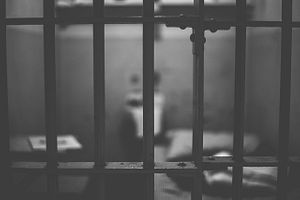Wu Xiaohui, the founder of Anbang Insurance Group — the Chinese financial conglomerate that purchased the luxury Waldorf Astoria hotel in New York in 2014 — was sentenced to 18 years in prison in early May. Although Wu had “expressed profound reflection and remorse for his crime” during his trial in March, he has now decided to appeal, maintaining his innocence.
This decision was announced by one of Wu’s current lawyers, Chen Youxi, early in the morning on May 30.
“Disagreeing with the verdict of the first instance, Wu has appealed for innocence. The Shanghai High People’s Court has formed a collegial court to review the appeal,” Chen wrote on his personal Weibo account. Chen also revealed that he, together with another lawyer, Li Guifang, is now representing Wu for the appeal case.
This specific post was removed from Chen’s Weibo later, but it’s unclear it was deleted by China’s internet censors or Chen himself.
Chen later confirmed on his Weibo again that the information he previously posted is true. However, he said he won’t accept media interviews ahead of the appeal due to an “early agreement,” without explaining with whom this agreement was made.
“I can’t disclose details about the case now,” he added. “The truth will be known in the future.”
It’s worth mentioning that Chen is one of China’s most famous lawyers, particularly known for serving as the defense in highly controversial cases. He is also well known for his skill in taking advantage of media interest and public opinion. The other lawyer, Li, is also one of China’s most famous lawyers, again particularly known for defending highly political or sensitive cases. For example, Li represented Bo Xilai, a disgraced former senior politician, in 2013.
The fact that Wu selected Chen and Li as his lawyers for his appeal demonstrated that Wu has taken a different approach — a highly risky and even desperate one — this time.
During Wu’s first trial, the name of his lawyer was not even released. Wu appeared to take a low-key and obedient stance.
As The Diplomat reported earlier, on March 28, Wu went on trial in Shanghai for charges of fundraising fraud and embezzlement. In court, Wu expressed “profound reflection and remorse for his crime” and “thanked the judiciary organ for [its] help, education, and rescue and asked the court for leniency.” He burst into tears and wiped his nose when saying so. The exact scene was specially broadcast on China’s national TV station later, although most journalists were barred from the court building.
On May 10, Wu was found guilty of embezzling about $1.6 billion and illicitly raising $10.2 billion in capital, and was sentenced to 18 years in prison.
According to China’s law, the sentence is actually quite lenient.
A Chinese legal professional, who wishes to remain anonymous, told The Diplomat that given the huge amount of money involved, the penalty for Wu’s crime could have been a life sentence. This professional believed that the relatively lenient sentence might be the outcome of Wu’s cooperative attitude during the trial.
However, Wu apparently is not content with the result. Wu’s personal background — once a high-profile Chinese financial tycoon, the ex-husband of Deng Xiaoping’s granddaughter, and a good friend of many of China’s princelings and foreign celebrities — might partly explain his way of thinking and his discontent with a lengthy prison sentence.
But Wu’s decision to fight to the end might not bring him a better outcome.
It’s very rare in China for a verdict to be amended upon appeal. “Wu might not even be given a chance to have a second trial. In most cases, the defendant will only receive a verdict on paper after appeal,” the legal professional told The Diplomat.

































